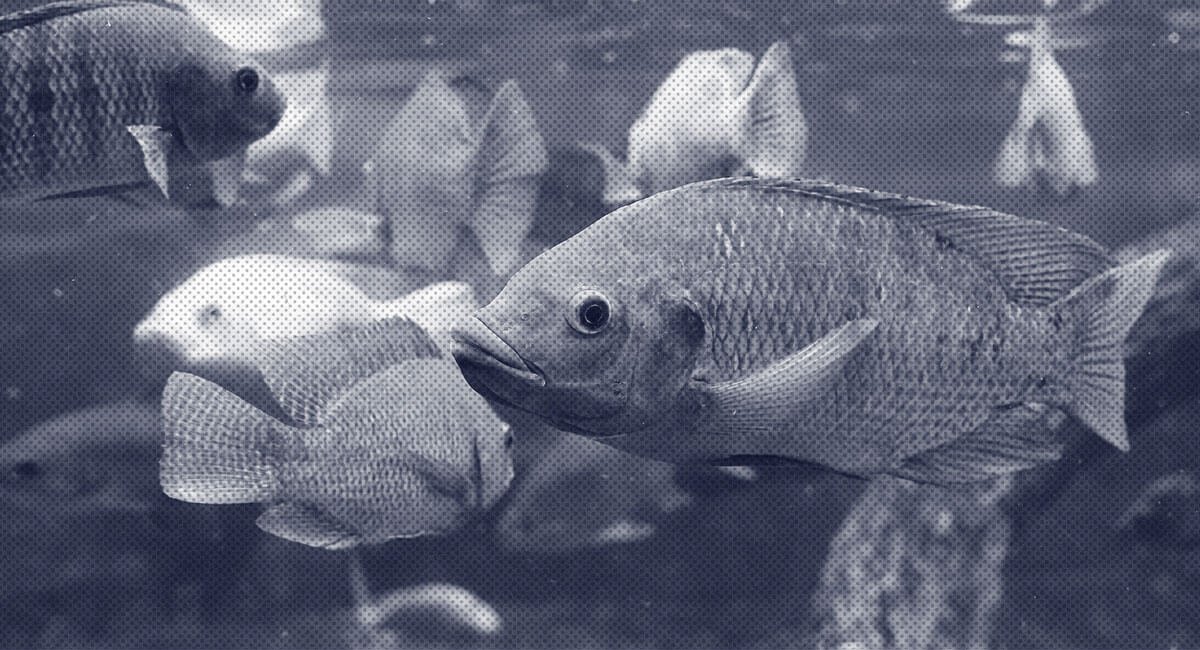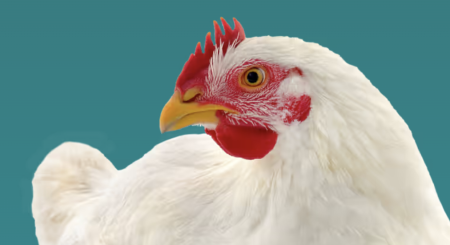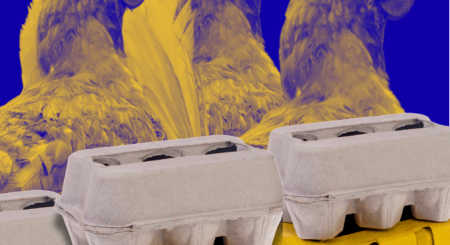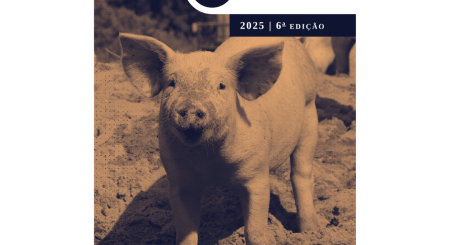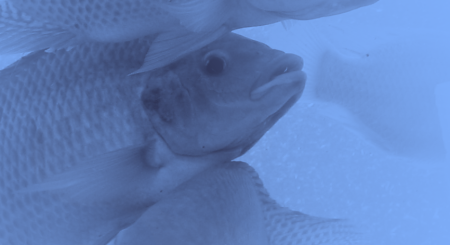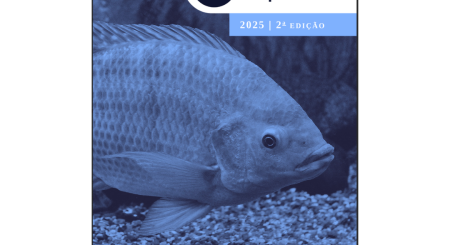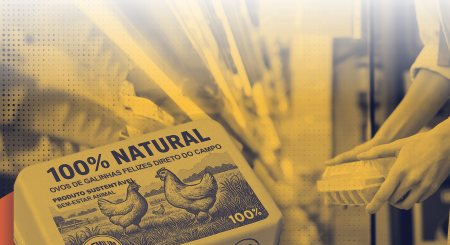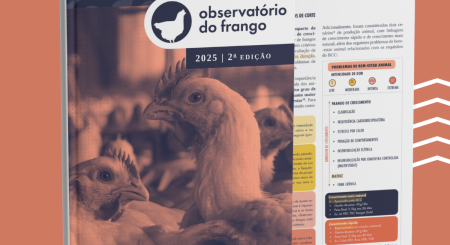Sentience refers to the ability to feel, understand or perceive something through the senses 1 , being a prerequisite for discussing the science of animal welfare. This means that sentient beings not only detect, observe, or react to things around them, but they can also feel something in response. From an evolutionary point of view, the ability to receive or possess impressions or sensations aids the survival of species and, therefore, it is not surprising that it evolved in humans and other animals, including fish 2 .
Fish are among the animals most used by man, whether for consumption, scientific research, recreation or as pets. Around 1.5 trillion fish are caught in the wild and up to 167 billion are farmed for human consumption each year around the world 3 . This number is approximately 25 times greater than all terrestrial animals slaughtered together, which corresponds to approximately 73 billion 4 . In addition to the devastating impact on wild fish populations and the aquatic environment, fish rarely receive the same level of empathy or concern for their well-being as other animals. Although the results of public opinion surveys indicate that the population believes that these animals have intelligence and emotions, and that they are capable of feeling pain, they demonstrate a lower degree of recognition of the sentience of fish than other animals 5 ,6 . Part of this problem is due to the large gap between the population’s perception of fish consciousness and sentience and scientific reality. In addition to fish being phylogenetically distant from humans, compared to mammals, we cannot hear them vocalize and they do not display recognizable facial expressions, which are primary clues to human empathy 7 .
Although the evolutionary and brain development trajectory of fish is different from that of other vertebrates, it is clear that there are many analogous structures that perform similar functions in these animals 7 . A body of anatomical, physiological, behavioral, evolutionary and pharmacological evidence suggests that fish are capable of feeling pain, fear and other feelings in a similar way to other vertebrates, and that their perception and cognitive abilities often match, or exceed, that of other vertebrates 7,8 . Fish have good memories, live in complex social communities where they follow other individuals and can learn from each other. In addition to cooperating with each other, they are capable of building complex structures, using tools and using the same methods to control quantities as we humans do. Most of the time, their primary senses are as good as ours and, in many cases, even better 9,10 . Furthermore, the brain structures that transmit pain in other vertebrates are also found in fish, indicating that they are capable of consciously feeling and reacting to different potentially harmful stimuli from the environment, generally accompanied by a reflex withdrawal response, favoring their survival 11,12 .
The recognition that humans are not the only animals with neurological structures that generate consciousness gave rise to the Cambridge Declaration on Consciousness, published in 2012 at the University of Cambridge, which presents the conclusion of a group of neuroscientists on the topic 13 . Therefore, what has been denied for so long is admitted: that many animals, including all mammals, birds and the invertebrate octopus, have consciousness. Two years later, the Curitiba Declaration, signed by nationally and internationally renowned experts, reinforces the idea that non-human animals are sentient beings and, as such, cannot be treated as things 14 .
Although scientists cannot provide a definitive answer about the level of consciousness of any non-human vertebrate, the extensive evidence of the behavioral and cognitive sophistication and pain perception of fish suggests the need to extend to fish the same level of protection given to fish. any other vertebrate 7 . From an animal welfare and ethics perspective, if an animal is sentient, it will likely suffer and therefore should receive some type of protection. However, during the handling and slaughter of fish, it is common to carry out practices without prior stunning to avoid unnecessary suffering and pain 15 . With this in mind, the World Organization for Animal Health (OIE) published the Aquatic Animal Health Code, which provides standards for improving the health of aquatic animals around the world, including standards for the welfare of fish farmed and used. of antimicrobial agents in aquatic animals 16 . The document serves as a basis to assist the competent authorities of all signatory countries, including Brazil, in drafting legislation and standards regarding the subject.
Therefore, I declare that I agree with the aforementioned explanation. The recognition of fish as sentient beings generates the need to incorporate concern for their well-being. The diagnosis of a very low level of well-being also interferes with the final quality of the product and is associated with economic losses for the producer 17 . Therefore, understanding a fish’s ability to feel pain and suffering is particularly important in relation to how they are treated. Therefore, the debate about animal consciousness and sentience is extremely important to raise awareness among the population and direct actions related to the well-being of these beings in all spheres, whether educational, scientific, legislative or productive.
“The question is not ‘can they reason?’ nor, ‘can they talk?’ but rather, ‘can they suffer?’” – Jeremy Bentham (1789).
São Paulo, May 25, 2021.
(Biologist, Master in Cellular and Molecular Biology)
(Veterinary Doctor, PhD in Production Animal Welfare)
(Zootechnician, Master in Animal Welfare)
(Veterinary Doctor, PhD in Veterinary Sciences)
(Zootechnician, PhD in Production Animal Welfare)
(Veterinary Doctor, Specialist in Collective Veterinary Medicine and Forensic Veterinary Medicine)
(Biologist, PhD in Biotechnology)
- Julia Eumira Gomes Neves Perini
(Veterinary Doctor, PhD in Animal Welfare and Professor at the Federal Institute of Brasília)
(Zootechnician, Director of FAI Farms do Brasil)
(Veterinarian and Zootechnician, Director of Aquatic Animal Alliance)
(Zootechnician, PhD in Animal Welfare and Professor at the Swedish University of Agricultural Sciences)
- Guilherme Maino de Azevedo
(Zootechnician, Animal Behavior Specialist)
- Thais Vaz Oliveira
(Veterinary Doctor, Animal Behavior Specialist)
- Anne Elise Landine Ferreira
(Biologist, Master in Animal Behavior and Biology)
(Zootechnician, PhD in Animal Welfare, Professor at the Federal Rural University of the Amazon and the Faculty of Higher Education of the Amazon Reunida)
(Zootechnician, PhD in Animal Welfare and Professor at the Federal University of Mato Grosso)
(Zootechnician, Sustainable Agriculture Manager at World Animal Protection Brazil)
(Biologist, PhD in Zoology from the University of Oxford)
(Zootechnician, PhD in Animal Welfare and Professor at the University of Calgary – Canada)
- Karen Camille Rocha Góis
(Zootechnician, PhD in Animal Welfare)
(Co-founder and Director of Operations at Fish Welfare Initiative)
(Agricultural Engineer, PhD in Animal Welfare and Professor at the University of São Paulo)
(Veterinarian, Director of F&S Consulting)
(Anthropologist, PhD in Psychology and Professor of Animal Welfare at New York University)
(Biologist, PhD in Fish Behavior, Professor at Macquarie University – Australia and Editor of the Journal of Fish Biology)
(Veterinary Doctor, PhD in Animal Behavior and Welfare)
- Rosangela Poletto
(Veterinary Doctor, PhD in Animal Science, Professor at the Federal Institute of Rio Grande do Sul, and Member of the Scientific Committee of Certified Humane)
- Maria José Hötzel
(Veterinary Doctor, PhD in Animal Science, Professor at the Federal University of Santa Catarina)
(Veterinary Doctor, Animal Welfare Specialist and Master in Animal Nutrition)
- Carla Molento
(Veterinary Doctor, PhD in Animal Welfare and Professor at the Federal University of Paraná)
- Aline Cristina Sant’Anna
(Biologist, PhD in Animal Welfare and Professor at the Federal University of Juiz de Fora)
(Biologist, PhD in Zoology, Specialist in Scientific Journalism and part of the FEG (Fish Ethology and Welfare Group)
- Maurizelia of Brito Silva
(Head of Conservation Unit at the Chico Mendes Institute for Biodiversity Conservation/MMA)
(Biologist, PhD in Aquaculture, and Professor at the Federal Technological University of Paraná)
(Zootechnician, Master in Animal Science, consultant at BEA Consultoria)
(Veterinary Doctor, Specialist in Economics and Sustainability Management)
- Vania de Fátima Plaza Nunes
(Veterinary Doctor, Specialist in Animal Behavior and Welfare, Public Health, Health Surveillance, Ecology and Environmental Education, Homeopathy and Forensic Veterinary Medicine)
(Veterinary Doctor, PhD in Veterinary Sciences and Professor at the Federal Institute of Southeast Minas Gerais)
(Veterinarian, Doctor of Fish Welfare)
- Karynn Capilé
(Veterinary Doctor, PhD in Bioethics)
- Lizie Pereira Buss
(Veterinary Doctor, President of the Ethics, Bioethics and Animal Welfare Committee of CRMV-DF and Federal Agricultural Tax Auditor of the Ministry of Agriculture, Livestock and Supply)
References
- SENTIENCE. In: DICIO, Online Portuguese Dictionary. Porto: 7Graus, 2020. Available at: https://www.dicio.com.br/trabalho/. Accessed on: 05/23/2021.
- Broom DM; Molento CFM. Animal welfare: concept and related issues – Review. Archives of Veterinary Science, vol. 9, no. 2, p.1-11. 2004. Available at: https://revistas.ufpr.br/veterinary/article/view/4057. Accessed on: 05/23/2021.
- Mood A; Brooke P. Fishcount. 2019. Available at: http://fishcount.org.uk/. Accessed on: 05/23/2021.
- Ritchie, H; Roser, M. Meat and Dairy Production. Published online at OurWorldInData.org . 2017. Available at: https://ourworldindata.org/meat-production. Accessed on: 05/24/2021.
- Pedrazzani, AS; Neto, AO; Carneiro, PCF; Gayer, M.V.; Molento, CFM. Public Opinion and Education on Humane Fish Slaughter in the Municipality of Araucária, Paraná. Brazilian Animal Science, [S. l.] , v. 9, no. 4, p. 976–996, 2008. Available at: https://www.revistas.ufg.br/vet/article/view/1361. Accessed on: 05/25/2021.
- Molento, CFM; Battisti, MKB; Rego, MIC. The attitude toward animals: people from the Northwestern Region of the State of Paraná, Southern Brazil. In: INTERNATIONAL CONFERENCE ON HUMAN-ANIMAL INTERACTIONS, 9, 2001, Rio de Janeiro. Abstract book. Rio de Janeiro: ARCA BRASIL/AFIRAC/WHO, p. 75. 2001. Acesso em: 23/05/2021.
- Brown, C. Fish intelligence, sentience and ethics. Anim Cogn 18, 1–17. 2015. https://doi.org/10.1007/s10071-014-0761-0. Available at: https://pubmed.ncbi.nlm.nih.gov/24942105/. Accessed on: 05/23/2021.
- Vila Pouca C, Brown C. Contemporary topics in fish cognition and behavior. Curr Opin Behav Sci 16:46-52. 2017. doi:10.1016/j.cobeha.2017.03.002. Available at: https://www.hrstud.unizg.hr/_download/repository/Contemporary_topics_in_fish_cognition_and_behaviour.pdf. Accessed on: 05/23/2021.
- Bshary R; Wickler W; Fricke H. Fish cognition: a primate’s eye view. Anim Cogn 5:1–13. 2002. Available at: https://pubmed.ncbi.nlm.nih.gov/11957395/. Accessed on: 05/23/2021.
- Brown C; Laland K; Krause J. Fish cognition and behavior. In: Brown C, Krause J, Laland K (eds) Fish cognition and behaviour. Wiley, Oxford, pp 1–9. 2011. Acesso em: 23/05/2021.
- Sneddon, L.U. Pain in aquatic animals. J Exp Biol; 218(7):967–976. 2015. doi: https://doi.org/10.1242/jeb.088823. Available at: https://pubmed.ncbi.nlm.nih.gov/25833131/. Accessed on: 05/23/2021.
- Pedrazzani, AS et al. Fish welfare and the question of sentience. Archives of Veterinary Science, [Sl], ISSN 2317-6822. 2007. doi: http://dx.doi.org/10.5380/avs.v12i3.10929. Available at: https://revistas.ufpr.br/veterinary/article/view/10929. Accessed on: 05/21/2021.
- Low, P; Panksepp, J; Reiss, D; Edelman, D; Van Swinderen, B; Koch, C. “The Cambridge Declaration on Consciousness”. Francis Crick Memorial Conference on Consciousness in Human and non-Human Animals. Cambridge, UK: Churchill College, University of Cambridge. 2012. Disponível em: http://fcmconference.org/img/CambridgeDeclarationOnConsciousness.pdf. Acesso em: 23/05/2021.
- Low, P; Lourenço, DB; Tezza, LBL; Castro, LSS; Choma, EF; Molento, CFM. “Curitiba Declaration”. III Brazilian Congress of Bioethics and Animal Welfare. Curitiba, Brazil. 2014. Available at: http://www.labea.ufpr.br/portal/wp-content/uploads/2014/08/A-Declara%C3%A7%C3%A3o-de-Curitiba-fica-dispon%C3 %ADible-to-all-as-a-concrete-result-of-the-III-Brazilian-Bio-Congress%C3%A9ticas-e-Animal-Welfare.pdf. Accessed on: 05/23/2021.
- Pedrazzani, AS et al. Sentience and Fish Welfare: A Vision of the Future of the Consumer Market, Aquaculture Panorama, v. 102, p. 24-29. 2007. Available at: https://panoramadaaquicultura.com.br/senciencia-e-bem-estar-de-peixes-uma-visao-de-futuro-do-mercado-consumidor/. Accessed on: 05/23/2021.
- OIE. Aquatic Animal Health Code. ed. 22, 2019. Available at: https://www.oie.int/en/what-we-do/standards/codes-and-manuals/aquatic-code-online-access/?id=169&L=1&htmfile=chapitre_welfare_introduction. htm. Accessed on: 05/20/2021.
- Molento, CFM; Dal Pont, G. Fish welfare diagnosis. Veterinary Science in the Tropics, v. 13, p. 6. 2010. Available at https://www.bvs-vet.org.br/vetindex/periodicos/ciencia-veterinaria-nos-tropicos/13-(2010)/diagnostico-de-bem-estar-de-peixes/ . Accessed on: 05/22/2021.

